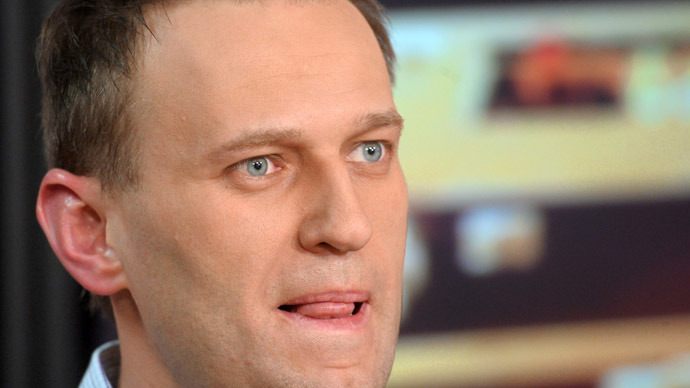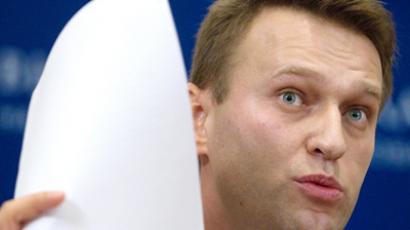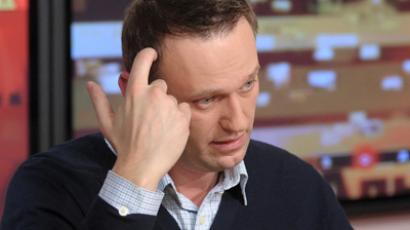Opposition blogger Navalny voices presidential ambitions amid dwindling support

As opinion polls showed that the public was losing trust in the most popular Russian anti-corruption blogger, Aleksey Navalny for the first time announced his intention to run for president.
“I want to become president. I want to change life in the country,” Navalny said in an interview to the Russian TV channel, adding that he wanted to make the lives of 140 million Russians “normal, like in some European country.”
“We are not worse than Estonians,” the activist added.
The question arose when Navalny and the host of the show, Timofey Dzyadko, discussed a video featuring last year’s protest in Moscow at which Navalny shouted at police and made promises like “later I will put you all behind bars.”
The journalist asked Navalny to clarify the “later” part, as many viewers thought the blogger meant the time when he becomes president. Navalny answered that this was roughly what he meant.
“At some point people will come to power who will put [the riot policeman who opposed protesters] in prison. Or, as states a more general opinion – I will put them all behind bars. It will be me or we all together. Under a different regime,” Navalny said, before declaring his intention to run for the presidency.
When the reporter asked Navalny about his presidential program, the blogger answered that it was “not to lie and not to steal.”
The question about Navalny’s future political plans was also partially prompted by the results of the latest public opinion polls.
Research conducted by the Levada Center shows that 37 per cent of Russian citizens are currently aware of Navalny’s existence and activities, while two years back, in April 2011, only 6 per cent of respondents claimed they knew who Navalny was.
At the same time, only 14 per cent of those who now know about Navalny said they were ready to vote for him at a presidential election, compared to 33 per cent two years ago. The share of those who said they would never support the blogger in a presidential poll rose from 56 to 66 per cent and the share of undecided also rose from 11 to 21 per cent.
Navalny’s announcement was also made shortly after the court set up a date of the first hearings into the case in which he is a suspect. Investigators claim that Navalny inflicted 16 million rubles (over US$500,000) in losses to the Kirovles timber company when he acted as a voluntary aide to the governor of the Kirov Region in 2009 and 2010. Navalny denies all the charges and claims that the case against him is politically motivated.
In comments to the statement, several Representatives of the parliamentary opposition said that Navalny’s announcement was nothing more than an attempt to attract attention and that the maximum support the blogger could hope for was between 5 and 7 per cent of the votes.
Representatives of parliamentary majority United Russia agreed that the share of Navalny’s supporters was “within the statistical error,” called the initiative ridiculous and said that the activist was trying to politicize the criminal process against him.














